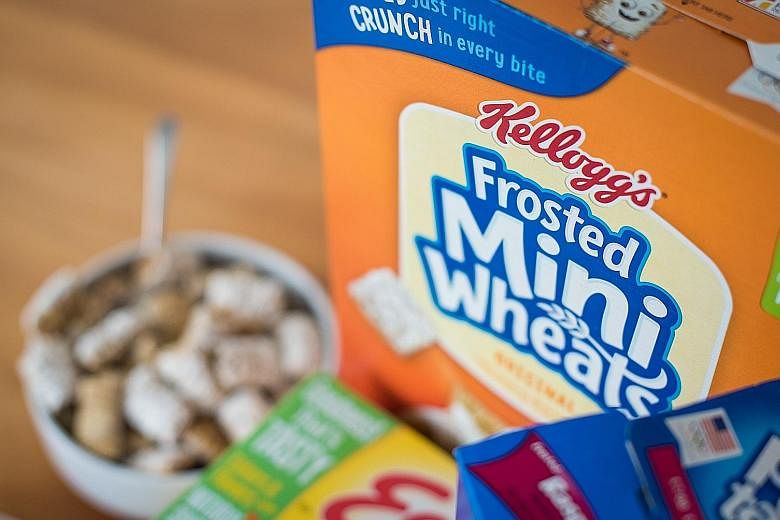CHICAGO • As Brexit looms, Kellogg and Mondelez International are taking measures to protect Britons from a potential shortage of Pringles chips, BelVita biscuits and Milka chocolate.
With Britain at risk of leaving the European Union on March 29 without a divorce deal - known as a "hard" Brexit - several big companies have begun to prepare for the disruption that could ensue.
Kellogg is opening new warehouses and stocking up on its snacks and cereals, hoping to mitigate damage from friction at the British border and tariffs on imports, chief executive Steve Cahillane said in a recent interview.
Kellogg is also working with suppliers to make sure it has enough raw materials at its plants, Cahillane said ahead of Cagny, a major food and consumer products event being held this week in Boca Raton, Florida.
"We're making plans and spending real money to mitigate impact. That's things like opening new warehouses, building inventory, preparing ourselves in the best possible way," Mr Cahillane said.
Mr Cahillane said Kellogg's supply chain left it exposed. For instance, Pringles, Britain's No. 2 crisp brand after PepsiCo's Walkers, are made in Belgium.
Pringles, which could last up to 15 months in storage, banked British retail sales of US$342.6 million (S$464 million) last year, according to Euromonitor.
In Europe, Kellogg's cereal business - the biggest in Western Europe with a 23.2 per cent share of the market last year - is sourced primarily from Britain, Mr Cahillane said. Europe accounted for nearly 18 per cent of Kellogg's total sales last year.
"In an EU environment that's just fine, but in a Customs environment, in a "hard Brexit" environment, it's going to change and we have to prepare ourselves for that."
Mondelez, meanwhile, is preparing for a "soft" Brexit, hoping that British and European lawmakers come to an agreement.
"Roughly, we're expecting interruptions to product flow for three to four weeks," chief executive Dirk Van de Put told Reuters on Tuesday on the sidelines of the Cagny conference.
Mondelez has increased warehousing and transportation capacity in Britain, and been stockpiling all its European-made products, including BelVita biscuits and Milka chocolate, Mr Van de Put said.
He added that Mondelez had no plans to raise prices for these products, but that a serious devaluation of the pound could make European goods very expensive.
"This could become a potential issue," he said.
Reuters reported on Tuesday that Britons could face shortages of fresh food, price rises and less variety if the country leaves the European Union next month without agreeing to trade terms.
Earlier this month, Kellogg said US$3 million in Brexit-planning costs were partly to blame for lower fourth-quarter earnings. This compounded surging input costs that have plagued the packaged food industry over the past year.
Anglo-Dutch consumer goods maker Unilever said last month that it was stockpiling ice cream in Britain and deodorants in continental Europe to guard against potential supply disruptions in the event of a no-deal Brexit.
REUTERS

